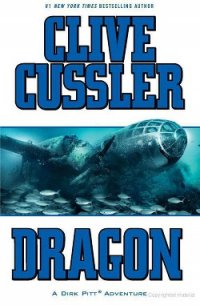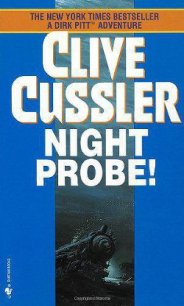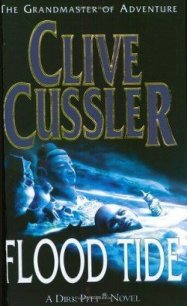Black Wind - Cussler Clive (книги полностью бесплатно txt) 📗
Just over a hundred miles from Panglao, the province of Leyte and its adjoining gulf was the site of the largest air sea battle in history. Days after MacArthur and his invasion force landed on "Leyte, the Japanese Imperial Navy appeared and successfully divided the American supporting naval force. The Japanese came within a hair of destroying the Seventh Fleet, but were ultimately turned back in a devastating defeat, losing four carriers and three battleships, including the massive battlewagon Musashi. The crippling losses finished the Imperial Navy's brief dominance in Pacific waters and led to the country's military collapse within a year.
The sea channels surrounding the southern Philippine islands of Leyte, Samar, Mindanao, and Bohol were littered with sunken cargo transport, and warships from the conflict. It would be no surprise to Pitt if the toxins were related to combat wreckage. Eyeing the gash in the cargo ship's hull, it was easy to presume that the vessel was a victim of war.
Pitt mentally envisioned the Japanese-flagged freighter under air attack, the desperate captain electing to run the ship aground in a perilous attempt to save the crew and cargo. Slicing into the coral reef, the bow quickly filled with water as the ship ricocheted off the sides of the crevasse. With a full head of steam, the ship literally drove itself over onto its port side. Whatever cargo the captain had tried to save lay hidden and dormant for decades to follow.
“I think we definitely hit the jackpot,” Giordino said in a morose tone.
Pitt turned to see Giordino's gloved hand pointing away from the hull and toward the adjacent reef Gone was the vibrant red-, blue-, and green-colored corals they had witnessed earlier. In a fan-shaped pattern stretching around the ship's bow, the coral was uniformly tinted a dull white. Pitt grimly noted that no fish were visible in the area as well.
“Bleached dead from the arsenic,” he noted.
Turning back to the wreck, he grabbed a small flashlight clipped to his buoyancy compensator and ducked toward the gap in the hull. Edging his way slowly into the ship's underside, he flicked on the light and sprayed its beam across the black interior. The lower bow section was empty but for a mass of thick anchor chain coiled in a huge pile like an iron serpent. Creeping aft, Pitt moved toward the rear bulkhead as Giordino slipped through the gash and followed behind him. Reaching the bulkhead, Pitt panned his light across the steel wall that separated them from the forward cargo hold. At its lower joint with the starboard bulkhead, he found what he was looking for. The pressure from the outer hull's collision with the reef had buckled one of the plates on the cargo hold's bulkhead. The bent metal created a horizontal window to the cargo hold several feet wide.
Pitt eased up to the hole, careful not to kick up silt around him, then stuck his head in and pulled in the flashlight. A huge lifeless eye stared back at him just inches away, nearly causing him to recoil until he saw that it belonged to a grouper. The fifty-pound green fish drifted back and forth across the compartment in a slow maze, its gray belly pointing up toward the trail of Pitt's rising exhaust bubbles. Peering past the dead fish into its black tomb, Pitt's blood went cold as he surveyed the hold. Scattered in mounds like eggs in a henhouse were hundreds of decaying artillery shells. The forty-pound projectiles were ammunition for the 105mm artillery gun, a lethal field weapon utilized by the Imperial Army during the war.
“A Welcome-to-the-Philippines present for General MacArthur?” Giordino asked, peering in.
Pitt silently nodded, then pulled out a plastic-lined dive bag. Giordino obliged by reaching over and grabbing a shell and inserting it in the bag as Pitt sealed and wrapped it. Giordino then reached over and picked up another highly corroded shell, holding it just a few inches off the bottom. Both men looked on curiously as a brown oily substance leaked out of the projectile.
“That doesn't resemble any high-explosives powder I've ever seen,” 'is said, gingerly setting the weapon down.
“I don't think they are ordinary artillery shells,” Pitt replied as he noted a pool of brown ooze beneath a nearby pile of ordnance. “Let's get this one back to the shipboard lab and find out what we've got,” he said, carrying the wrapped ordnance under his arm like a football. Gliding forward along the bow section, he slipped through the open hull and back into the bright sunlit water.
Pitt had little doubt that the armament was a lost World War II cache. Why the arsenic, he did not know. The Japanese were innovative in their weapons of war and the arsenic-laced shells might have been another device in their arsenal of death. The loss of the Philippines would have effectively spelled the end of the war for the Japanese and they may have prepared to use the weapons as part of a last-gasp measure against a determined enemy.
As they surfaced with the mysterious shell, Pitt felt a strange sense of relief. The deadly cargo that the ship carried so many years ago had never reached port. He was somehow glad that it had ended up sunk on the reef, never to be fielded in the face of battle.
Japanese Imperial submarine I-413 and Numa submersible Starfish June 4, 2007 Kyodongdo Island, South Korea At fifty-five meters in length, the steel-hulled Benetti yacht was impressive even by Monte Carlo affluent standards. The custom-built Italian yacht's lush interior featured an array of marble flooring, Persian carpets, and rare Chinese antiques, which filled the cabins and salons with warm elegance. A collection of fifteenth-century oil paintings by the Flemish master Hans Memling dotted the walls, adding to the eclectic feel. The glistening maroon-and-white exterior, which featured a wide band of wraparound dark-tinted windows, was given a more traditional appearance, with inlaid teak decking and brass fittings on the outside verandas. The entire effect was a tasteful mix of old-world charm combined with the speed and function of modern design and technology. Always turning heads as it roared by, the vessel was an admired fixture on the Han River in and about Seoul. To the local society crowd, an invitation aboard was a highly desired mark of prominence, providing the rare opportunity to sil with the boat's enigmatic owner.
Dae-jong Kang was a leading icon of South Korean industry and he seemed to have his hands in everything. Little was known of the mercurial leader's early background, aside from his sudden appearance during the economic boom of the nineties as the head of a regional construction company. But upon his taking over the reins, the low-tech firm became a corporate Pac-Man, gobbling up companies in the shipping, electronics, semiconductor, and telecommunications industries in a series of leveraged buy outs and hostile takeovers. The businesses were all rolled under the umbrella of Kang Enterprises, a privately held empire entirely controlled and directed by Kang himself. Unafraid of the public spotlight, Kang mixed freely with politicians and business leaders alike, wielding additional influence on the board of directors of South Korea's largest companies.
The fifty-year-old bachelor held a veil of mystery over his private life, however. Much of his time was spent sequestered at his large estate on a secluded section of Kyodongdo Island, a lush mountainous outpost near the mouth of the Han River on the western Korean coast. There he dabbled with a stable of Austrian show horses or worked on his golf game, according to the few who had been invited inside the private enclave. More carefully hidden was a dark secret about the iconoclastic businessman that would have completely shocked his corporate cronies and political patrons. Unknown to even his closest associates, Kang had operated for over twenty-five years as a sleeper agent for the Democratic People's Republic of Korea, or North Korea, as it was known by the rest of the world.




